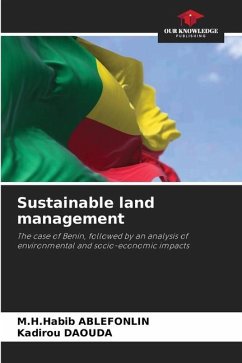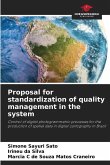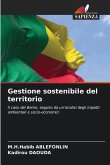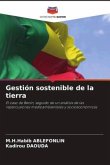Given the seriousness of the impacts of Climate Change (CC) and the dangers it poses to the ecosystem, a number of Non-Governmental Organizations (NGOs) and financial and technical structures, in collaboration with Farmers' Organizations (FOs), have initiated Sustainable Land Management (SLM). The aim of this work is to capitalize on best practices in sustainable land management for climate change adaptation in Benin in particular, and in Sahelian Africa in general, while at the same time analyzing the environmental and socio-economic impacts of these techniques in Benin. Then, the environmental and socio-economic impacts of SLM practices were analyzed after a comprehensive study on the issue of Climate Change (CC). Benin's challenges in the face of this issue were also addressed, with a view to making recommendations to key players in the agronomy sector.
Bitte wählen Sie Ihr Anliegen aus.
Rechnungen
Retourenschein anfordern
Bestellstatus
Storno








